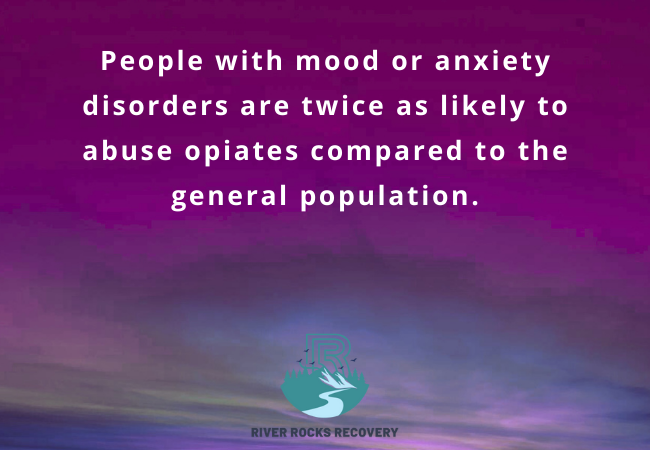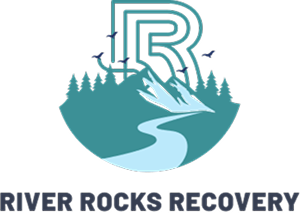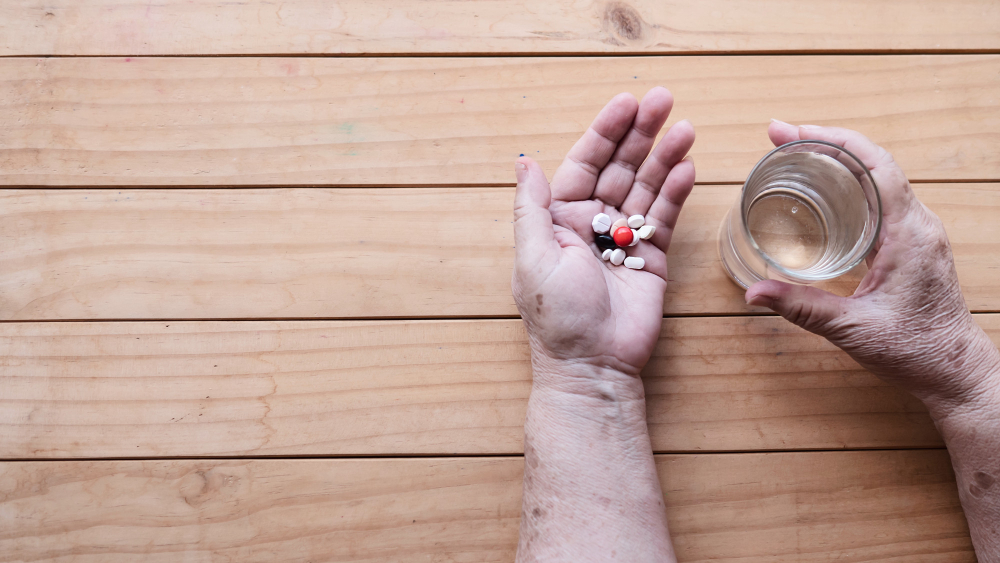Opiate addiction alone is life-threatening. But when it coexists with mental illness, the risk of overdose, relapse, and long-term harm increases exponentially. For individuals struggling with both substance use and mental health conditions—a condition known as dual diagnosis—standard addiction treatment isn’t enough. What’s needed is a fully integrated approach that addresses the emotional, psychological, and chemical roots of addiction.
At River Rocks Recovery, we provide dual diagnosis-focused opiate rehab through a range of evidence-based Addiction Treatment Programs in Middletown, Ohio. Our goal is not just to help individuals get sober—but to empower them with the tools, therapies, and clinical care they need to stay well, mentally and physically, for the long haul.
This comprehensive guide will explore:
- What dual diagnosis is and how it impacts recovery
- Why integrated opiate rehab is crucial
- What services River Rocks Recovery provides in Middletown, Ohio
- The long-term benefits of dual diagnosis treatment
- Real patient insights, statistics, and recovery outcomes
Understanding Dual Diagnosis: The Overlooked Epidemic Within Addiction
What Is Dual Diagnosis?
Dual diagnosis, also known as co-occurring disorders, refers to the presence of both a substance use disorder (SUD) and a mental health condition. Common mental health conditions found in dual diagnosis patients include:
- Depression
- Anxiety disorders
- Bipolar disorder
- Post-Traumatic Stress Disorder (PTSD)
- Schizophrenia
- Obsessive-Compulsive Disorder (OCD)
- Personality disorders
The Substance Abuse and Mental Health Services Administration (SAMHSA) estimates that nearly 9.2 million Americans live with both a mental illness and substance use disorder. Of these, only 5.7% receive treatment for both conditions at the same time.
The Dangerous Cycle of Untreated Dual Diagnosis
Dual diagnosis is not just two problems—it’s one interconnected struggle. Mental illness can drive substance abuse, and chronic drug use can worsen or even trigger mental health disorders. Opiate use, in particular, is closely tied to self-medication behaviors.
Example Cycle:
- Someone with PTSD uses prescription opioids to numb intrusive memories
- Dependency builds as tolerance increases
- Withdrawal worsens anxiety and insomnia
- The individual continues using to avoid both psychological and physical pain
Without addressing both conditions, people stay stuck in this dangerous loop—often leading to overdose, suicide, or hospitalization.
The Link Between Opiate Addiction and Mental Health
Opioids don’t just affect the body—they hijack the brain’s natural chemistry. Prolonged use disrupts the production of dopamine, alters neural circuits related to reward and motivation, and impairs emotional regulation.
Common Connections:
- Depression and opiate use: Individuals suffering from chronic sadness or hopelessness may turn to opioids for temporary relief.
- Anxiety and opiate use: The sedative effects of opioids can feel calming, making them attractive to those with panic disorders or social anxiety.
- Trauma and PTSD: Many survivors use opiates to block out painful memories or emotional flashbacks.
When addiction and mental health issues are left untreated—or treated separately—the risk of relapse is almost guaranteed.
Why Dual Diagnosis Requires Integrated Treatment
Treating only the addiction or only the mental health condition is ineffective and dangerous. For dual diagnosis patients, recovery demands simultaneous, coordinated care that stabilizes both the mind and body.
Benefits of Integrated Dual Diagnosis Treatment:
- Addresses root causes: Healing trauma, managing anxiety, or stabilizing mood reduces the urge to self-medicate.
- Improves treatment retention: Mental health support improves engagement and consistency in rehab.
- Reduces relapse: Managing psychiatric symptoms lowers relapse triggers.
- Promotes whole-person wellness: Clients feel emotionally safe, supported, and motivated.
At River Rocks Recovery, our programs are designed from the ground up for dual diagnosis patients. Every element of care—from therapy to medication—is customized to support long-term recovery from both mental health and opiate addiction.
Dual Diagnosis Opiate Rehab Services at River Rocks Recovery
We provide a full continuum of care through our Addiction Treatment Center in Middletown, Ohio, offering clients access to evidence-based therapies, clinical oversight, and a compassionate, judgment-free environment.
1. Partial Hospitalization Program in Middletown, Ohio (PHP)
Our PHP offers the highest level of outpatient structure, designed for clients who need daily support but not overnight care.
Features include:
- 5–6 days per week of clinical programming
- Psychiatric evaluations and medication management
- Dual diagnosis group and individual therapy
- Crisis management and trauma-informed care
- Life skills coaching and peer support
PHP helps clients stabilize mentally and physically after withdrawal, laying the groundwork for long-term healing.
2. Intensive Outpatient Program in Middletown, Ohio (IOP)
Our Intensive Outpatient Program provides structured support 3–5 days a week for clients who are stepping down from PHP or balancing treatment with work or school.
Includes:
- Dual diagnosis therapy sessions
- Relapse prevention strategies
- Flexible scheduling options
- Continued medication monitoring
- Peer support and recovery community building
IOP helps clients reintegrate into life while maintaining accountability and structure.
3. Outpatient Treatment Program in Middletown, Ohio
Our Outpatient Treatment Program offers weekly therapy, alumni support, and relapse prevention strategies for those in long-term recovery.
Key offerings:
- Ongoing mental health support
- Medication check-ins
- Individual counseling as needed
- Family therapy opportunities
- Long-term recovery planning
This stage supports lifelong growth and community connection, which are vital for dual diagnosis recovery.
Specialized Therapies for Dual Diagnosis Recovery
River Rocks Recovery incorporates a diverse range of therapies to ensure each client’s unique needs are met. We believe in treating the whole person—not just the addiction or diagnosis.
Evidence-Based Modalities We Offer:
- Cognitive Behavioral Therapy (CBT) – Restructure negative thought patterns that drive addiction and mental illness.
- Dialectical Behavior Therapy (DBT) – Teaches emotional regulation and distress tolerance, ideal for trauma and personality disorders.
- EMDR (Eye Movement Desensitization and Reprocessing) – Used for clients with PTSD or unresolved trauma.
- Motivational Interviewing (MI) – Builds internal motivation for change through compassionate dialogue.
- MAT (Medication-Assisted Treatment) – We offer Suboxone and other medications alongside therapy for opiate cravings.
These approaches are not one-size-fits-all—they are strategically combined based on each client’s diagnosis, history, and recovery goals.

The Long-Term Benefits of Dual Diagnosis Opiate Rehab
When both mental health and substance use are treated together, the long-term outcomes improve dramatically.
Benefits Include:
- Reduced risk of relapse and overdose
- Improved emotional resilience and mood stability
- Higher treatment engagement and completion rates
- Stronger relationships and social support systems
- Enhanced ability to maintain employment or pursue education
- Renewed sense of purpose, hope, and identity
Dual diagnosis clients often report that integrated treatment finally helps them understand themselves—why they use, what they feel, and how to live well without substances.
Family Involvement: Healing Together
Families are not bystanders in addiction—they’re participants. That’s why we offer comprehensive family programming as part of dual diagnosis treatment.
Our Family Support Services Include:
- Education on co-occurring disorders
- Joint therapy sessions to rebuild trust
- Communication skill-building
- Boundary-setting and codependency workshops
- Referrals to family support groups and resources
When families are engaged, the recovery process is stronger, deeper, and more sustainable.
Aftercare and Continuing Support for Dual Diagnosis Clients
Recovery doesn’t end when a program does. Dual diagnosis clients especially benefit from ongoing aftercare that monitors their emotional and behavioral progress long-term.
Our Aftercare Options Include:
- Individual and group therapy check-ins
- Alumni events and peer recovery support
- Medication management services
- Referrals to psychiatrists and therapists
- Crisis planning and 24/7 support connections
Clients who engage in ongoing care reduce their risk of relapse by over 50%, according to recent SAMHSA studies.
Get Help Today
If you or someone you love is struggling with both mental health challenges and opiate addiction, you are not alone—and you do not have to navigate this alone. At River Rocks Recovery, we provide compassionate, evidence-based care designed specifically for individuals facing the complex reality of dual diagnosis.
Our programs—including our Partial Hospitalization Program in Middletown, Ohio, Intensive Outpatient Program, and Outpatient Treatment Program—are tailored to support your complete recovery journey. Call us now at 888-905-6281 to speak with a member of our team and begin the path toward healing. The road may be long—but with the right support, it leads to lasting freedom.
Frequently Asked Questions (FAQs)
What is dual diagnosis in addiction treatment?
Dual diagnosis refers to when a person has both a substance use disorder and a mental health condition, such as depression, anxiety, PTSD, or bipolar disorder. Both conditions need to be treated together for long-term recovery.
Why is dual diagnosis care important for opiate addiction?
Mental health issues like trauma or anxiety often drive opiate use. If these underlying conditions aren’t addressed, individuals are more likely to relapse. Integrated dual diagnosis treatment helps manage both conditions simultaneously for better outcomes.
What types of therapy are used in dual diagnosis treatment?
Common therapies include Cognitive Behavioral Therapy (CBT), Dialectical Behavior Therapy (DBT), trauma-focused therapy (including EMDR), and Medication-Assisted Treatment (MAT). These are tailored to treat both addiction and mental health symptoms.
How do I know if I need dual diagnosis treatment?
If you use opiates to cope with emotional pain or have been diagnosed with a mental health condition alongside addiction, dual diagnosis care is likely the right choice. Symptoms like depression, anxiety, panic attacks, or trauma flashbacks are key indicators.
Does River Rocks Recovery offer dual diagnosis care in all levels of treatment?
Yes. Our Partial Hospitalization Program in Middletown, Ohio, Intensive Outpatient Program, and Outpatient Treatment Program all include services for dual diagnosis patients, including therapy, medication management, and trauma support.
What is the long-term outlook for dual diagnosis patients?
With the right integrated care, dual diagnosis patients can achieve lasting sobriety, improved mental health, and meaningful life changes. Studies show that individuals who receive coordinated treatment for both disorders have significantly lower relapse rates.

